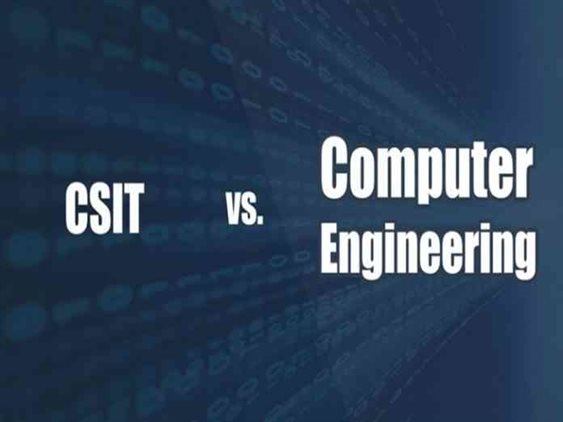There has been a great debate between CSIT and Computer engineering for a long time ago. The conflict and confusion between these two courses take place in both academic and professional life. For a student who wants to pursue a career in the computer industry, it is always hard for them to choose between CSIT and Computer engineering.
This time we are up with a post that might clear a long-running confusion between CSIT and Computer Engineering. I hope this article will be worth reading to you.
Let’s begin with Computer engineering; it is the study of the computer its design and implementation. Computer engineering is a discipline that integrates several fields of computer science and electronics engineering required to develop computer hardware and software. Computer engineers usually have training in electronic engineering (or electrical engineering), software design, and hardware-software integration instead of only software engineering or electronic engineering.
Computer engineers are involved in many hardware and software aspects of computing, from the design of individual microcontrollers, microprocessors, personal computers, and supercomputers, to circuit design. This field of engineering not only focuses on how computer systems themselves work but also how they integrate into the larger picture.
Likewise, in Computer Science Information Technology (CSIT) you have to learn about the actual science behind the computers, computing programming, and analysis of the machine. An IT career involves installing, organizing and maintaining computer systems as well as designing and operating networks and databases.
As we all know, the charm towards both of these subjects is increasing massively in Nepal. Keeping this thing in mind, we have prepared some pros and cons of these subjects that can be experienced here in Nepal.
-
CSIT
Pros:
- CSIT course is an updated course and frequently changed the curriculum.
- It is more focused on Job-oriented skills in a course
- It has more freedom for selecting the elective subject during 6 and six additional semesters.
- You can choose any career of your own like programming, networking, database, etc.
- During studying itself if you are skilled, you can get a chance to earn money.
Cons:
- You are not allowed to be called an engineer. No matter how experienced you are in the programming fields.
- Result publication by TU is very much delayed.
- More expensive and has no clear path to a scholarship
- The courses and prices are frequently changed and lack of competent human resources to teach the subjects.
- Not have sufficient books available in the market.
-
Computer Engineering
Pros:
- Unlike CSIT, you get a degree to be called an engineer.
- It has better job opportunities since the government invests a lot of money into computer engineering than into CSIT.
- The course is focused explicitly on the theoretical base, so the student has a solid conceptual understanding of any subject.
- Computer Engineering is primarily focused on hardware, and networking so student having an interest in robotics would be the best choice than CSIT.
Cons:
- It is more theoretical than practical so has less job-oriented than CSIT
- It is an ancient course designed not revised frequently like CSIT
- Most of the subjects mentioned in Computer Engineering are irrelevant and not so practical as job-oriented perspective.
- The course is deemed to be designed by electronic engineers so not practical for programming fields.
These are just a few of pros and cons exist between CSIT and Computer Engineering field, if you find more, please don’t forget to comment us.











